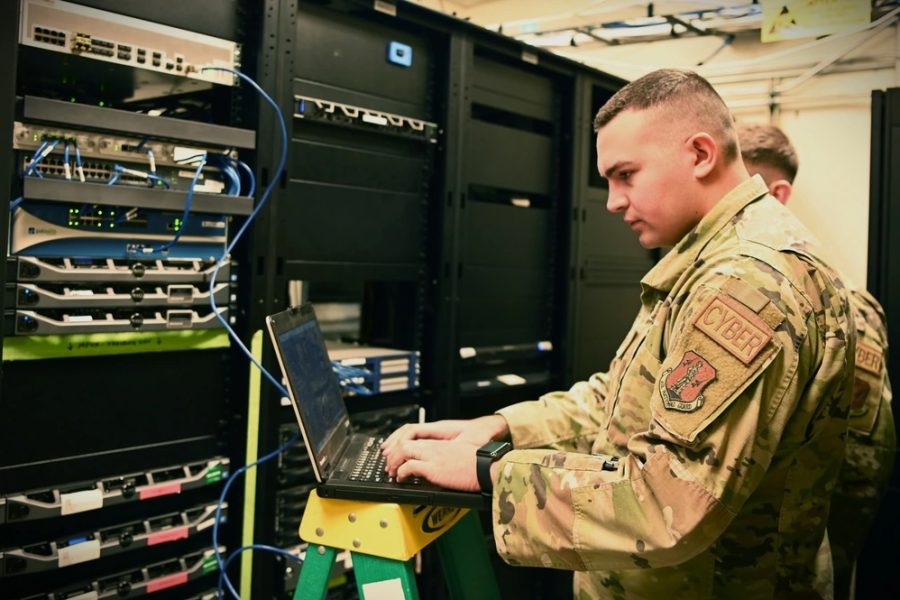Editor’s Note: This story was updated March 6 with a comment from CMSAF JoAnne S. Bass on details of the warrant officer implementation plan.
The top enlisted leader in the Air Force said the branch’s first batch of new warrant officers since 1959 is due to be selected this summer, with the first class starting later this year.
“The force of the future will look different and we’ve got to figure out ways to attract, onboard, retain the force that we’re going to need,” Chief Master Sergeant of the Air Force JoAnne Bass said March 5 in a Facebook livestream with Secretary of the Air Force Frank Kendall.
“Today’s generation, they want to serve, they just want to have different pathways to service and we’ve got to be agile enough as a force to do that,” she added. “I couldn’t be more excited for the warrant officer path.”
Bass and Kendall did not offer more details on the application process or the requirements for the warrant officer program. A spokesperson for Bass later told Air & Space Forces Magazine that “the implementation plans and guidance are currently being developed.”
The news comes about three weeks after Air Force Chief of Staff Gen. David Allvin announced that the service will try bringing back warrant officers in the information technology and cyber career fields in a bid to retain highly-skilled technical specialists, 45 years after the last Air Force warrant officer retired in 1980. The Air Force and Space Force are the only military services not to include warrant officers, who fill technical rather than leadership functions in the other military branches.
“We are in a competition for talent, and we understand that technical talent is going to be so critical to our success as an Air Force in the future,” Allvin said Feb. 12 at the AFA Warfare Symposium. The warrant officer track could allow Airmen “to pursue the technical path without having to choose between that and the leadership path.”
Warrant officers could be important in cyber and software, where technology moves particularly fast. Kendall said on Feb. 14 at the symposium that about 100 Airmen joined other branches in recent years so that they could become warrant officers in IT and cyber. Current career tracks often take Airmen out of their specialty for long durations; Kendall recalled meeting officers returning to cyber after three years in a completely different field.
“Now I don’t know about you, but if I had a doctor who had not been doing medicine for three years and who was about to do surgery on me, I would be a little nervous,” the secretary said on the final day of the symposium. “We need continuity in some of these people.”
The initial cohort, according to planning documents posted on the unofficial Air Force amn/nco/snco Facebook page and obtained by Air & Space Forces Magazine, would consist of 30 prior-service personnel, though the pipeline could scale up to 200 junior warrant officers and 50 senior warrant officers a year. Director of the Air National Guard Lt. Gen. Michael Loh told Air & Space Forces Magazine that his troops will be among the first batch.
“The folks that bring the predominant force structure from a cyber, IT perspective is the National Guard; over two-thirds of the Air Force capability resides in the National Guard,” he said.
Allvin cautioned against expanding the program too quickly as the Air Force evaluates the program in the cyber and IT fields. Success may involve measuring how long warrant officers stay in the service, what level of talent they develop as warrant officers, and how much they increase productivity and effectiveness in the IT and cyber arenas. Those metrics may take years to collect, but Kendall has a feeling that the program will someday expand other career fields.
“I expect ultimately, assuming that we’re successful with these initial steps, that we’ll probably expand it,” he said March 5. “I don’t think it’s going to happen immediately, so you shouldn’t hold your breath about this. But my sense is, my own intuition about this, is that we’re going to want to expand it after we see how effective it is for cyber and IT.”
A former Army officer, Kendall recalled seeing how warrant officers in the maintenance career fields “made a major contribution to the force,” he said. “These are people who are going to work in that field and they’re going to be the masters, if you will, of that tradecraft. They’re going to be mentors and trainers for other people.”
Bass, whose tenure as top Air Force enlisted leader ends March 8, echoed that opinion. Warrant officers are a way of “ensuring that we have different pathways and an ability to bring on the talent that we’re going to need to be able to be the force of the future,” she said.
